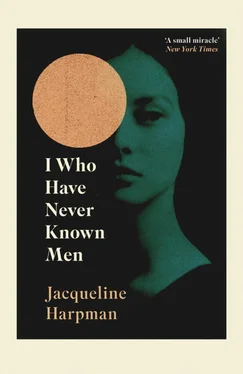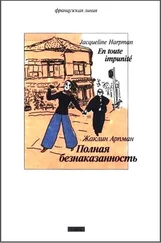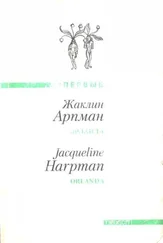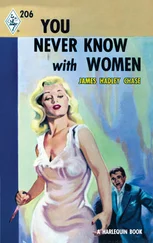Жаклин Арпман - I Who Have Never Known Men
Здесь есть возможность читать онлайн «Жаклин Арпман - I Who Have Never Known Men» весь текст электронной книги совершенно бесплатно (целиком полную версию без сокращений). В некоторых случаях можно слушать аудио, скачать через торрент в формате fb2 и присутствует краткое содержание. Город: London, Год выпуска: 2019, ISBN: 2019, Издательство: Vintage, Жанр: Социально-психологическая фантастика, sf_postapocalyptic, на английском языке. Описание произведения, (предисловие) а так же отзывы посетителей доступны на портале библиотеки ЛибКат.
- Название:I Who Have Never Known Men
- Автор:
- Издательство:Vintage
- Жанр:
- Год:2019
- Город:London
- ISBN:978-1-47357-080-1
- Рейтинг книги:5 / 5. Голосов: 1
-
Избранное:Добавить в избранное
- Отзывы:
-
Ваша оценка:
- 100
- 1
- 2
- 3
- 4
- 5
I Who Have Never Known Men: краткое содержание, описание и аннотация
Предлагаем к чтению аннотацию, описание, краткое содержание или предисловие (зависит от того, что написал сам автор книги «I Who Have Never Known Men»). Если вы не нашли необходимую информацию о книге — напишите в комментариях, мы постараемся отыскать её.
I Who Have Never Known Men — читать онлайн бесплатно полную книгу (весь текст) целиком
Ниже представлен текст книги, разбитый по страницам. Система сохранения места последней прочитанной страницы, позволяет с удобством читать онлайн бесплатно книгу «I Who Have Never Known Men», без необходимости каждый раз заново искать на чём Вы остановились. Поставьте закладку, и сможете в любой момент перейти на страницу, на которой закончили чтение.
Интервал:
Закладка:
Jacqueline Harpman
I WHO HAVE NEVER KNOWN MEN
TRANSLATED FROM THE FRENCH BY
Ros Schwartz
WITH AN INTRODUCTION BY
Sophie Mackintosh
To Denise Geilfus in friendship

Introduction
Sometimes we read a book of such singularity and uniqueness, yet such ringing truth, that we wonder why it has not found a larger audience. Jacqueline Harpman’s I Who Have Never Known Men is beloved by a small and intense core of readers, and yet has not entered mainstream awareness. Perhaps that’s not so surprising, refusing as it does to be put into a neat genre box. It’s a philosophical treatise as much as it is a story about an alien world, one that prizes the humanity of its characters and places this humanity square, front and centre, even in a disorientating landscape of total strangeness. The prose is cool water. Its images are lonely, weird, sometimes horrific, and always arresting.
In recent years we have seen a boom in science and speculative fiction written by female authors, but I Who Have Never Known Men seems eerily prescient, a book from a hundred years ago or a hundred years in the future. Lumping together female-centred science fiction can be reductive; problems of women are still problems that affect everyone living under patriarchy. In fact, femaleness is somehow both central to and almost incidental in this novel. Yes, there are men among the dead, but the novel would look very different were men to make an appearance beyond their roles as guards and dead prisoners.
The narrator is at the heart of this doubleness, presenting her memories and theories to us from a space of peculiar neutrality. She is not like the other women of the novel, with their memories of the outside world and knowledge of relationships, sex, love and family. Her body never developed the markers of reproduction, and being raised in an underground bunker since an early age, she is in a unique position to be a person without any of the signifiers of personhood. She is an example of a person raised without culture, without societal constructs, without knowledge. She is a pure experiment asking: what does a person become when stripped to the core, raised in isolation? What might a woman be like under these conditions? It is testament to the strength and beauty of this novel that she remains a character too, not just a device; she is formed, sympathetic, and possessing both curiosity and courage.
Nowhere in this novel is exploitation, pain for the sake of pain, or needless cruelty. The entire novel manages to balance its elegant philosophical concerns with also being an amazing feat of human tenderness. Everything is pared down, and everything has a purpose. Harpman shows the worst of what humans can inflict on humans, but also the best that love and togetherness can do. It is a ‘minute account of a nightmare’ (Hector Bianciotti, Le Monde ) and yet also a triumph of the small, seemingly trivial fragments that make up who we are. ‘“It’s all so ordinary, it’s the same as everybody else!”’ exclaims one of the women when talking about her previous life; to which the narrator responds with ‘As if she did not realise that for me, nothing was ordinary, since nothing had happened to me’.
No life is ordinary, the book seems to say. No life is without hope, without light, even during the unimaginable.
The plot of I Who Have Never Known Men is simple. Forty women are held in what appears to be an underground bunker, where they have been for many years. They are controlled by male guards, and the usual basic provisions of modernity – electricity, food, water – are available to them. Life continues for many years, until one day a siren goes off. By a stroke of luck the women are able to free themselves, and they start out upon a mysterious world gradually realising, horror after horror, that they might be the last people on this alien-seeming planet.
Despite this the novel chooses to begin with life – focusing on the narrator’s coming of age, as shown through her fascination with the youngest male guard. The narrator gives us a frank description of her own burgeoning sexuality, while simultaneously remaining dislocated from it. In many ways she is as much an alien as the planet she lives on, compared to the other women, who spent their lives working service jobs and raising families. She has no idea of what a ‘normal’ human life might look like, and the other women react to this with unease.
But maybe it is femininity itself that is the strange thing. From the offing the narrator’s sexual fascination with the guard calls up modern echoes of submissiveness and fantasy. What could be more human than want and desire: the machinations of your body kicking in? (And what a strange thing we are forced to admit desire is, when seen at this distance.) The narrator observes human behaviour and bodies objectively, in a way that is both curious and dehumanising; her perspective emphasises both her disconnection with her body, and the essential strangeness of having one, particularly one that you have not been taught about, one controlled by others. She may not have the learned behaviours of dances and marriages, but even a person raised in captivity learns to want, yearns to see beyond their cage.
How much of our humanity is intrinsic? How much remains, when all else is stripped away?
The story and the world the novel takes place in is pared down to the point of frustration. It possesses a Daliesque surrealism; its landscape owes as much to Beckett as it does to Bradbury. The world the liberated women walk through seems desolate, dotted from time to time with trees, rivers, and nightmare bunkers just like the one they have escaped from. There is no sense of who has confined them and for what reason, whether they’re even wandering Earth. The sparse clues muddy the water further: unchanging seasons, a bus full of dead guards, captives in cages, a luxurious bunker underground. Nothing is explained, but nothing needs to be. The beauty and power of the novel is in its ambiguities, in the hypotheticals allowed to flourish and demonstrate what they need to demonstrate. It should be unremittingly bleak, for all the ingredients for bleakness are there; and yet there is a shining, searching humanity at its core that carries it through.
As the narrator discovers her own sense of selfhood and agency, the older women cling on to theirs: they discuss their pasts, they rail against having to use the toilet in front of everybody else, they discuss recipes when cooking their meagre rations of meat, water and potatoes. They are aware that the narrator exists in a different world to them, that she is of this world in a way that they are not, a bridging person between the old order and the new. Later on, devastatingly and compassionately, it is this difference that enables the narrator to enact fatal acts of love upon the older women. Death, in this world, has its own dignity, a dignity repeatedly exhorted as human. The other caged humans they discover have died terrible deaths, but the narrator admires those who have died calmly, facing the terror, unafraid. It is human to be afraid of death, of unimaginable pain, and it’s another kind of humanity to transcend it.
This approach to death, to suffering, makes it difficult to analyse such a novel without acknowledging that the author was Jewish, having fled to Casablanca with her family during the Second World War. There are echoes of concentration camps in the senseless cruelty of their confinement, the endless cracking of the whips of the mysterious prison guards, the sickening inevitability as they discover, over and over and over, that everyone else on the planet imprisoned in the same way as them has perished. And for what? A project with a vague beginning – the ‘confusion’ the women allude to, sirens and fire and being taken from their homes – and then nothing but an endless, pointless confinement.
Читать дальшеИнтервал:
Закладка:
Похожие книги на «I Who Have Never Known Men»
Представляем Вашему вниманию похожие книги на «I Who Have Never Known Men» списком для выбора. Мы отобрали схожую по названию и смыслу литературу в надежде предоставить читателям больше вариантов отыскать новые, интересные, ещё непрочитанные произведения.
Обсуждение, отзывы о книге «I Who Have Never Known Men» и просто собственные мнения читателей. Оставьте ваши комментарии, напишите, что Вы думаете о произведении, его смысле или главных героях. Укажите что конкретно понравилось, а что нет, и почему Вы так считаете.












